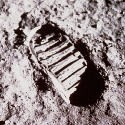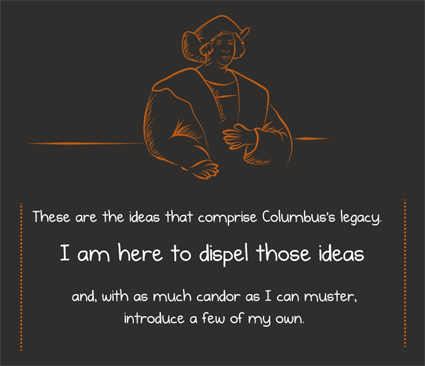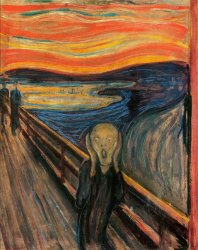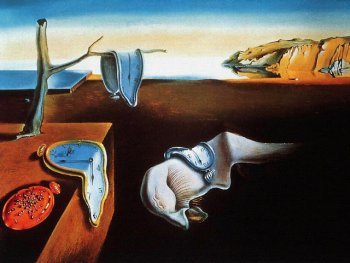I've debated whether or not to post this entry because I'm really out of my element here, and some of my wonderings and musings come off sounding more positive than I really feel about them. So, I'll just stress up here that this isn't my area of expertise, and that I'm not nearly as certain as some of what I wrote below would make it seem.
 Perhaps my favorite
Perhaps my favorite blog website right now is Jerry Coyne's Why Evolution Is True. He posts about a variety of interesting topics, largely evolution and religion, and I agree to a large extent with his opinions. However, being one of those free-thinking types, I just can't accept authority unquestioningly. Last week, he posted a couple entries that I just couldn't agree with, Rock and roll is dead, and a follow-up, Match this song, extolling the Beatles as "the greatest rock group ever". Reading through the comments of that second entry was just too much. I had to leave a comment, and I figured I'd pull it out here to finally get this off my chest - the Beatles were good, but overrated.
Anyway, below is the comment I left on Coyne's site. To keep it easier to read, I'm going to denote the start and stop of that comment with '---' instead of using a blockquote tag, and I did add a bit of formatting (bullets) that wasn't in the comment on Coyne's site.
---
I've always liked the Beatles well enough. There are a handful of their songs that I really like, and then a bunch of songs that I won't skip when they come up on my playlist. But all this fawning over them is enough to turn my stomach. So, as an antidote, I went googling "Beatles overrated", and found a few entertaining articles. For anyone interested, here they are (I hope this isn't a bannable offense):
Here's an excerpt from the first article:
The blues permeates the most vital contemporary music of the last century like a rich seam of platinum. It runs like blood through the beating heart of just about any music of note outside the classical world. Don't even try and claim a similar legacy for those third-rate, mop-topped hacks. I'll just laugh. Or poke you in the eye with my pen. As if a case could ever be made for, say, Pink Floyd, Black Sabbath or even Simon and Garfunkel being, in any way, defined by some shallow, plastic, pop-tarts from the 60s! Go on; try. Yeah, thought so...
And another:
As far as individual musical proficiency goes, it'll take barely a paragraph to pull these fakers from their Ivory Tower and expose the Emperor's New Clothes (excuse the mixed metaphors; that's what they do to me, God damn 'em!). Ringo, you're first up, my man; as a drummer, Mr Starr, as Lennnon himself famously remarked, was not only not the best drummer in the world, he wasn't "...even the best drummer in The B*atles". Sadly, poor old Ringo lacked sufficient talent to even polish John Bonham's cymbals. Or pour Keith Moon's booze. Or even chop Ginger Baker's lines with his sticks.
And here's an excerpt from the second:
The Beatles are what they always were - the safe, money-spinning, housewives' choice. Their albums are easy listening (fine for 50-somethings, but the Beatles were cardigan-wearing duffers in their 20s). Sgt. Pepper, their much-trumpeted "psychedelic" album was as mindbending as an Asda mushroom pie. Give or take Helter Skelter, they never even rocked, really. Next to the Stones, the Who or the Troggs, the Beatles are the low alcohol lager of the 60s.
---
That first link really is good, and puts the Beatles into perspective (another short excerpt - "The world's first, and still, its most successful, boy band."). They were a good band, and they were and continue to be extremely popular, but I wonder if their true talent and influence on rock music have been greatly exaggerated.
Actually, I'd originally intended for this entry to be pretty short and end with the above paragraph, but this leads into a larger discussion. How influential are any individuals/small group in history, vs. riding the tide of the forces surrounding them? In my field, I can easily bring up the Wright Brothers as an example. They were the first to successfully fly a heavier than air machine. Their insights and achievements were extremely impressive. But honestly, they were only a few years ahead of their time, at most. There was a rather large field of researchers investigating flight, and they were making progress. The Wrights themselves built on the work of previous and contemporary investigators, such as George Cayley, Gustave Eiffel (of Tower fame), Hiram Maxim, Samuel Langley, Octave Chanute, and Otto Lilienthal. And although the Wrights first flew in 1903, they kept their ongoing research largely secretive while attempting to perfect their machines, and in the meantime, others such as Alberto Santos Dumont, Louis Blériot, and Glen Curtiss were getting their own machines aloft. So, even if the Wrights had never decided to try to make a flying machine, the world would still have had airplanes by the late 1900s or early 1910s.
So, what about the Beatles? Well, to start off, they didn't develop in isolation. They started in skiffle, and developed their sound from there along with the other Merseybeat groups. When the British Invasion occurred in the mid 1960s, it was spearheaded by the Beatles, but they were quickly followed by acts such as Dusty Springfield, The Animals, Manfred Mann, The Rolling Stones, The Troggs, Donovan, Them, The Yardbirds, The Kinks, and The Who. Those other acts weren't copying the Beatles. They were contemporaries who had developed their own musical styles at the same time. i.e. While there's always some cross pollination in the art world, the Beatles weren't a huge influence on these other early acts of the British Invasion. In fact, several of those groups were completely outside the Merseybeat genera, with many being influenced much more by pure blues. And those other bands/singers are nothing to sneeze at. It makes you wonder whether music today would be much different had it been The Stones to have led the British Invasion instead of the Beatles. Or, to put it another way, were The Beatles really that influential in the British Invasion, or were they just in the right place at the right time to put a face on a burgeoning music scene that would have exploded no matter what?
Moving past the early years of the British Invasion, I'm not alone in thinking that the Beatles earliest songs weren't their best. Even Wikipedia notes that "From 1965 on, the Beatles produced what many critics consider their finest material, including the innovative and widely influential albums Rubber Soul (1965), Revolver (1966), Sgt Pepper's Lonely Hearts Club Band (1967), The Beatles (1968) [aka the White Album], and Abbey Road (1969)." But again, the question becomes how much the Beatles were pioneers themselves, versus being part of a larger movement. Aside from those bands mentioned in the previous paragraph, consider what other bands and musicians were acting in the mid '60s developing the Psychedelic rock scene, which would go on to spawn progressive rock, glam rock, hard rock, and heavy metal - The Sonics, The Incredible String Band, The Holy Modal Rounders, The 13th Floor Elevators, Jimi Hendrix, Big Brother & The Holding Company (feat Janis Joplin), Donovan, The Doors, The Velvet Underground, etc. So again, the Beatles were just one of the players in an emerging music format, and could actually even be described as very early adopters, following in the footsteps of those earliest psychedelic groups.
Anyway, I'm just a guy who likes listening to music, not a hard core audiophile or music historian. Most of my knowledge of music history is informed by a few articles here and there and Wikipedia, so take my commentary for what it's worth. I still like the Beatles, and I can understand how they did have a big impact in the way music was marketed, and popularizing the notion of singer/songwriters as opposed to just performing music written by professional writers, but it seems to me that their impact on music itself has been exaggerated. As I wrote above, it seems that they were just lucky to be in the right place at the right time to be the face of a new sound being pioneered in England (Merseybeat), and then to be astute enough to adopt new styles as the market shifted. I'm sure music would be somewhat different today if the Fab Four had never picked up guitars, but I'm really not so sure that it would be drastically different.
Image Source: Wikimedia Commons
P.S. I left out a lot of other musical influences from that era, such as Bob Dylan, Crosby Stills Nash and Young, etc. When you consider all the great bands from that era, it's even harder to swallow the over-hyped influence of the Beatles. Again, this isn't to say the Beatles weren't good, just that they've taken on a mythic reputation that doesn't match reality.
 Today is traditionally celebrated as Columbus Day, but Columbus really was a horrible excuse for a human being. It's not just the myth about him proving the world was round, or lucking into finding a continent that nobody knew existed, but his horrible, horrible treatment of the natives and even the Spaniards in the first Spanish colony in the Americas.
Today is traditionally celebrated as Columbus Day, but Columbus really was a horrible excuse for a human being. It's not just the myth about him proving the world was round, or lucking into finding a continent that nobody knew existed, but his horrible, horrible treatment of the natives and even the Spaniards in the first Spanish colony in the Americas.

 I've never been a huge sports fan. I'm not oblivious to sports, but for the most part, I don't make it a point to watch them. I have gone through a few periods where I'll follow a particular sport for a little while, but none of those periods has lasted long term. When I was in middle school, it was hockey, back when Lindros was just getting started in Philly (when
I've never been a huge sports fan. I'm not oblivious to sports, but for the most part, I don't make it a point to watch them. I have gone through a few periods where I'll follow a particular sport for a little while, but none of those periods has lasted long term. When I was in middle school, it was hockey, back when Lindros was just getting started in Philly (when  Perhaps my favorite
Perhaps my favorite  Today is National Hot Dog Day. In fact, all of July is National Hot Dog Month, but I forgot to post about that earlier. So far this month, I've had a bacon cheese dog from
Today is National Hot Dog Day. In fact, all of July is National Hot Dog Month, but I forgot to post about that earlier. So far this month, I've had a bacon cheese dog from 






